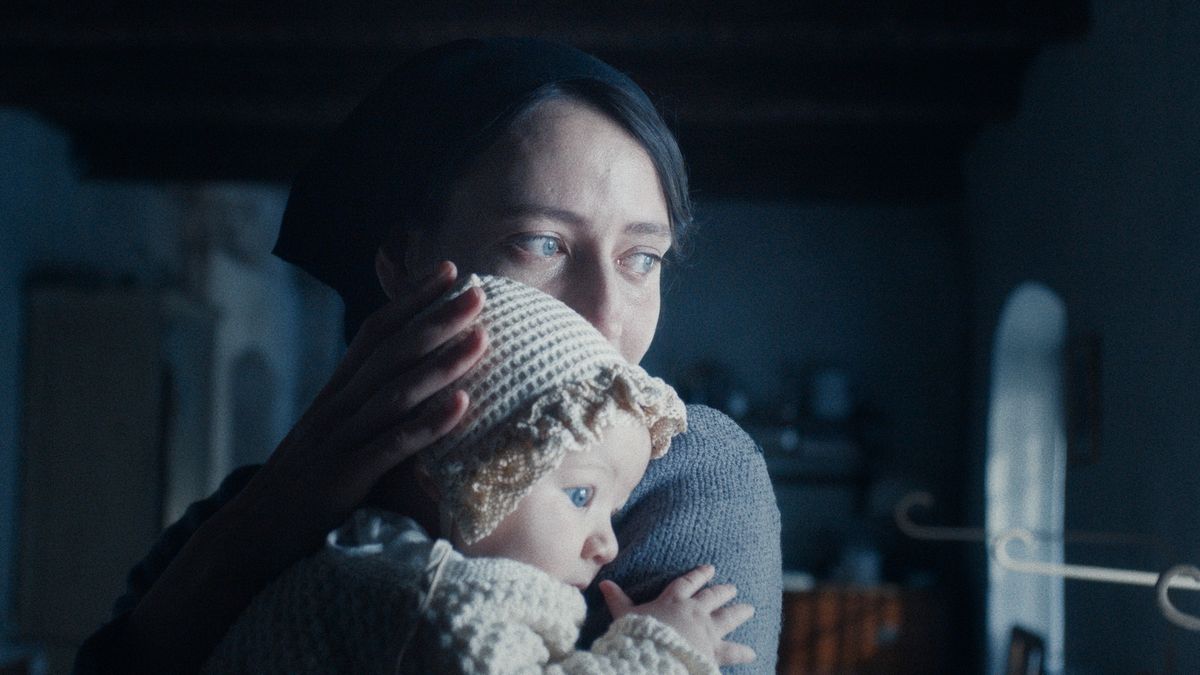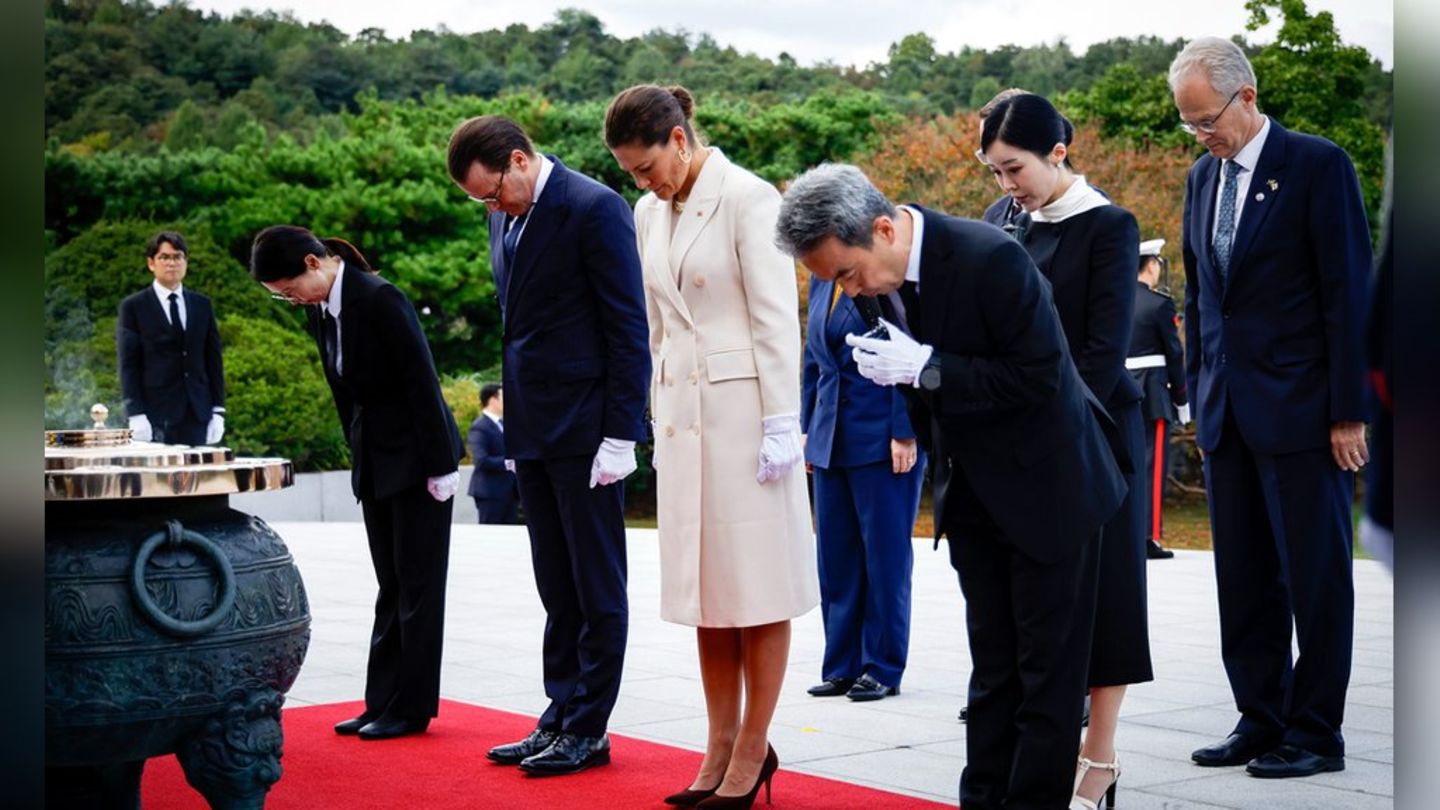Balanced combination of rural poetry, drama content and female discovery of life, “Vermiglio”recent Oscar candidate, will be exhibited tomorrow and Sunday in Cinepolis Recoleta, integrating the 11th. Italian film week. Next to the movie is Maura delperothe director, who surprises in the first place for her fluid and perfect management of Spanish, and then because of the natural way she has managed to combine work and motherhood. This is a very nice anecdote, told by a team member. We dialogue with her:
Maura delpero: I was born in Bolzano, I studied Italian literature at the University of Bologna, I worked in Rome, but one day I came to teach at the Cristoforo Colombo School, Belgrano neighborhood, I liked Argentina, I came again, and I started traveling more and more often. Now I have two hearts. My previous film, “Maternal”, co -production between the two countries, was filmed entirely here, with local cast. For “Vermiglio” we try to make another co-production, but it is a too European story, set in 1943-45 in a small community of the Italian Alps.
MP: It really went. Many villagers of Vermiglio and Trento traveled to the other tip of the world excited by a false promise, because they were given land, but unproductive. The letters they sent by telling their disappointment leave. Years later several settled in Argentina and Brazil.
Q.: The peasant customs, religiosity, the concealment of deserting soldiers, the sometimes conflicting reunions in the postwar periods, prejudices, and the innocent daily life of the daughters of the teacher of the people, those things that you revive and that excite.
MD: The teacher is directly inspired by my grandfather. The teacher, the priest and the doctor were the dominant figures of all people, for better and worse. The interesting thing is that he was born right there in Vermiglio, he could be another peasant, but he had been given to study and especially he was to convey what he had learned.
Q.: His pride of being the teacher of the people makes him feel annoyed by the eldest son, who is half a donkey.
MD: But he has a lot of emotional intelligence, he is one of those people who are not going to sleep without seeing that everyone else is well lying down. The mother realizes that and always defends him in front of the father.
Q.: And it is the one that deduces where the sister may have gone in a moment of despair. So the teacher is inspired by his grandfather …
MD: And Pietrin, the youngest son, the most curious and more awake, is inspired by my father (the love I have) is seen. There is also something of my grandmother, who lost two children, and something from my mother, but not deliberately, on the contrary, I was writing the script and unconsciously appeared things of family history like a red thread that was taking me. Then there is an issue that already appears in my latest films: girls who for different reasons have a hard time taking care of their motherhood.
Q.: To the girl in her movie, the cousin approaches and takes her hand.
MD: Having lived war is more sensitive than others to people’s pain. Notice, he is the only one who has a gesture of understanding towards her, because, as they say here, “Chico people, big hell.” In Pueblo Chico, one feels content, but it is a risk when something happens and everyone judges you, and judge your family. In the city a woman would be more alone, but freer.
Q.: The characters speak the dialect of those mountains, the Sicilian deserter speaks another, the priest and the altar boys speak in Latin, sometimes some speak Italian, how did this film happen in Italy?
MD: It occurred with subtitles. When “Vermiglio” was still a project, some asked me to speak “a soft dialect”, but I wanted that realism, because the dialect represents them and just as they speak in another way also seem to think otherwise.
Q.: And that affirms the feeling of really seeing what was happening at that time. But is it true that regional dialects still have so much weight in Italy?
MD: It is natural. … Today all people speak Italian all day, but in bed they are not going to speak Italian.
Q.: Right in bed? And what happened to “The Boyfriends”? They said that the Italian language was affirmed in the nineteenth century thanks to that Romantic novel by Manzoni and now forget it right in bed.
MD: The one that has definitely imposed the Italian language was not a romantic novel, but the arrival of television in the 1950s.
Q.: What sadness. Something reminds me that you did, years ago, a documentary called “professors.”
MD: And that is inspired by my first year as a professor of Italian literature, when you don’t know what is expected of you, and you are there alone in front of the classroom. Then I spent several years in the trench. I have seen the loneliness of the teachers. In the documentary there are young people who go to another city away from the home to get a greater score, who wonder how to interest students less attentive, I have seen teachers cry disillusioned and ask if they really want to continue in teaching, if they really chose their profession well, and I have also seen a teacher in their last year of career, about to retire. Luckily the boys of the Colombo school are all very applied, well -educated guys.
Q.: How did an Argentine, Santiago Fondevila, appear in his film?
MD: Fondevila is my producing partner, he is an actor in my film (the character of the cousin does) and, I have to admit it, it is my husband. He is a madman like me, a fighter like me, together we live this experience of making a very lung movie, with a lot of work in a territory such as Vermiglio, 1,200 meters high, a very nice and very difficult experience, because we also had a small baby.
Q.: A baby?
MD: And yes, children and financing to make a movie come out when they come out. The paternal grandparents went from Argentina to help, but there was something that only I could do, and the director of photography commented in an interview they did. He said to a Polish media, “I will not forget this movie that suddenly, in full filming, the director took the tit to breastfeed her baby while keeping us directing.”
Q.: Ah, I congratulate her, that in Hollywood no director would be encouraged.
Source: Ambito
I am an author and journalist who has worked in the entertainment industry for over a decade. I currently work as a news editor at a major news website, and my focus is on covering the latest trends in entertainment. I also write occasional pieces for other outlets, and have authored two books about the entertainment industry.




